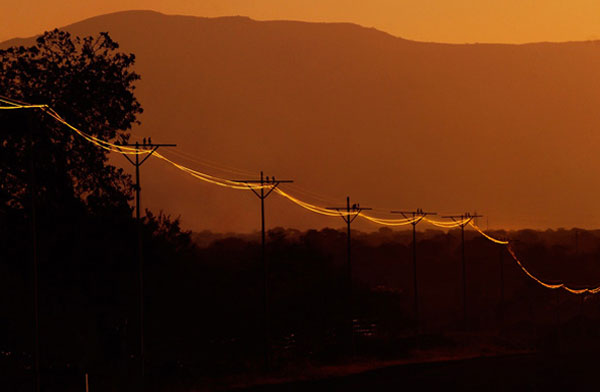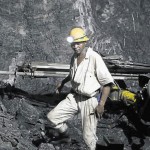The number of households in South Africa legally connected to the electricity mains has increased by almost 50% over the last 10 years, a new survey by Statistics SA released today shows.
Releasing Statistics SA’s survey on household energy, Statistician General Pali Lehohla said the number of households with legal electricity connections shot up by 49% between 2002 and last year, from 8.3 million households to 12.4 million.
In all, 85.3% of households were connected to the electricity grid last year, up from 77.1% in 2002.
Of the remaining 15% in 2012, four percent have no electricity access and 11% are connected to electricity but not to mains, with many of these being illegal connections.
The survey found that of the 11% of households with access to alternative electricity connections, just 12% of households did not pay for electricity.
However, Lehohla said it was concerning that 12.6% of South Africans – mainly in rural provinces – still use wood for cooking.
Among provinces, the use of solid fuels for cooking is as high as 46% of households in Limpopo, 23.5% in Mpumalanga, 18% in the Eastern Cape and 17% in KwaZulu-Natal.
Turning to the increase in electricity connections, Lehohla said the gap had been closed by the addition of 4.1 million connections over the 10-year period, despite 3.8 new households being added over the same period (which stood at 14.6 million last year).
The percentage of households connected to the electricity grid ranges from 91.5% in the Free State to 79.3% in KwaZulu-Natal and 80.4% in the Eastern Cape.
However, Lehohla pointed out that the Eastern Cape had done much to close the gap in the number of households with access to electricity – as just 55% of households were connected to the grid in 2002.
He said since the introduction of free basic electricity by the government in 2005, the number of households that have qualified for the provision has steadily declined from 45.8% to 27.5% last year because of the sharpening of criteria needed to qualify for the provision.
The survey also revealed that among households with a per capita income of under R390 a month, just 79% have electricity connections, compared to 94% for those with monthly incomes of R4 000 or more.
While 94% of formal homes and 91% of RDP subsidised homes are connected to the grid, just 54% of households in informal areas and 63% in traditional areas have electricity connections to the grid.
Over three quarters of South Africans use the pre-paid method to pay for electricity, with just 21% opting to pay for their electricity by way of bills – with the latter ranging from six percent in rural areas to 27% in urban areas.
Nationally, only 4.6% of households did not pay for electricity – with the Northern Cape and Gauteng topping the list at non-payment rates of 8.3% and 8.2% respectively.
In all, 3.4% of households reported that electricity was cut off during 30 days before the survey due to non-payment – with the highest number of reported cuts found in North West (4.9%) and Mpumalanga (4.4%).
North West tops the list for the highest number of electricity disruptions, with 45.6% of respondents reporting disruptions, compared to just 5.5% in KwaZulu-Natal.
The survey also revealed that households consume 13% of electricity in the country – through transport, cooking and refrigeration – with manufacturing making up the largest slice at 49%.
Electricity demand spiked at a growth of 14.4% in 2008, up from 7.7% in 2002 and hitting a 13.3% growth in demand in 2009.
Across the country 47% of households’ electricity is supplied by Eskom and 50% by municipalities.
Other findings from the survey include:
Households spent an average of R2 494 a month on electricity, gas and other fuels.
Men on average spend almost half the time that women spend to collect wood for energy.
In all, 18% of rural households and 8.4% of urban dwellers use candles and paraffin for lighting.
57% of households said it was acceptable to protest about electricity prices, while 97% reported that it was never acceptable to steal electricity.
Statistics SA recommended that the country provide more off-grid power solutions and renewable energy sources for poor households, particularly those in rural areas where provision of electricity from the grid is not cost-effective.
South Africa, said Statistics SA, should also introduce effective and efficient technologies to reduce the hazards of using solid fuels for heating, cooking and lighting. – SAnews.gov.za








